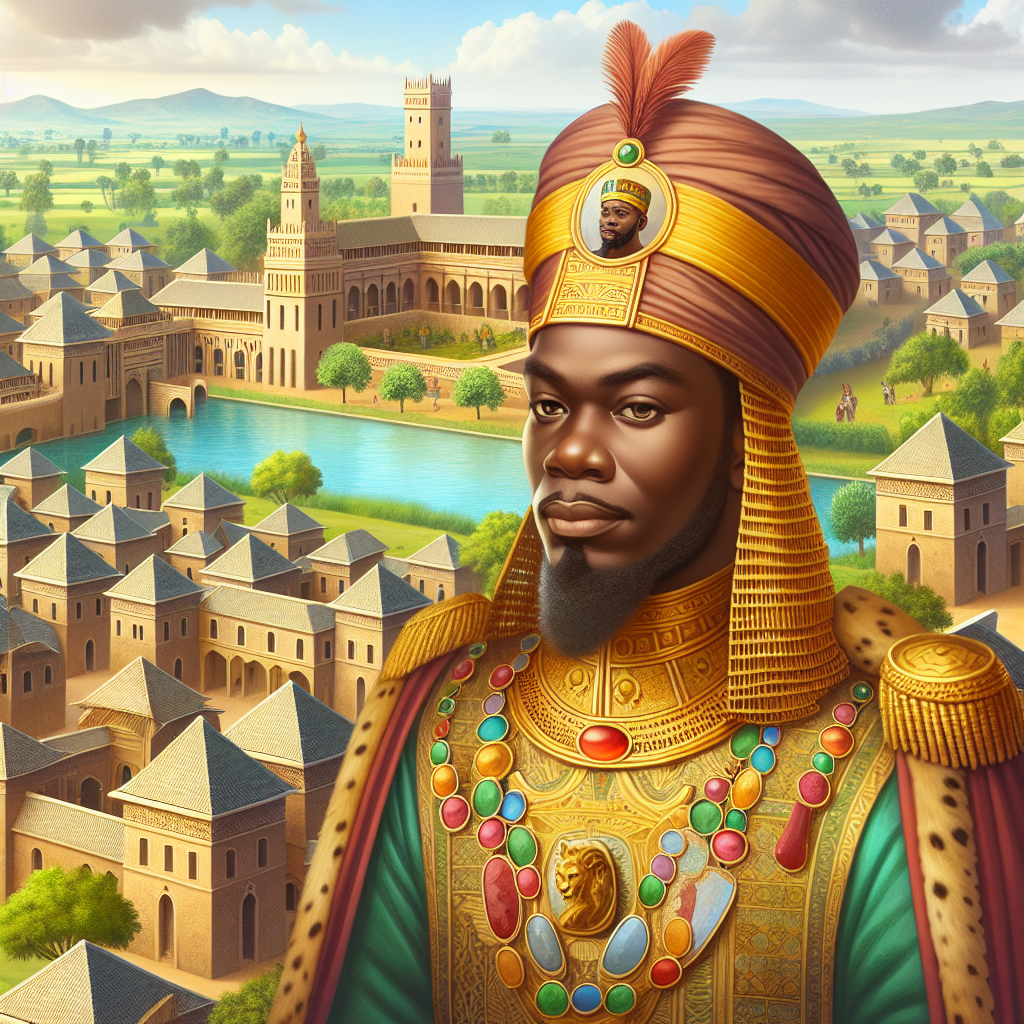Rediscovering the Mali Empire and Mansa Musa: A Joyful Leap Through Africa’s Golden Age
I. The Mali Empire: A History You Probably Didn’t Learn in School
Ah, the ancient empires! Those things history teachers seem to love to talk about while glossing over the real juicy bits. But let’s give credit where credit is due; the Mali Empire totally deserves a shout-out. Originating around 1235 AD, this empire wasn’t just hanging out in West Africa—it was running the show! I mean, while Europe was still figuring out how to take a bath, Mali was out here flexing wealth and culture like nobody’s business. Bring on the riches and the visionary leaders, starting with the original Lion of Mali himself, Sundiata Keita, whose brilliance gave rise to one of the largest empires in African history. Talk about setting the bar high!
II. Sundiata Keita: Trailblazer Extraordinaire
Can we take a moment to appreciate Sundiata? He didn’t just stroll around the banks of the Niger River; he was busy connecting nomads and agricultural communities like some ancient Uber Eats. Can you imagine? A giant empire sprung up because someone decided to trade more than just gossip. The Mali Empire was a melting pot of cultures, and before you knew it, they were cruising into a golden age while the rest of the world was still playing catch-up.
III. The Golden Age: Prosperity that Shook the Game
Now let’s talk about the Mali Empire’s golden age—trust me, it was the real deal. Picture it: bustling trade routes selling gold and salt, and cities like Timbuktu becoming hotspots of economic success and cultural exchange. Forget Silicon Valley; this was the original tech boom… for knowledge! Artists, poets, and scholars met to whip up some serious intellectual magic, and they built stunning edifices like mosques and libraries. Who needed European scholars when malian Muslim scholars were blazing the trail? If only history classes in the Western world would quit skipping over this part—hello, cultural erasure!
IV. Mansa Musa: The Original Mega Influencer
Enter Mansa Musa, aka the wealthiest man ever to exist (sorry, Jeff Bezos). Ascending the throne in the 14th century, this man didn’t just run an empire; he was living proof that wealth isn’t merely about the dollars in your bank account, but about how you use it. His famous pilgrimage to Mecca in 1324 wasn’t just a religious excursion; it was a viral moment for the ages. Imagine throwing cash around so lavishly that you redefine the value of gold! Heck, he made sure everyone knew Mali was a force to be reckoned with in the Islamic world and beyond. Meanwhile, the rest of the world was still trying to figure out who they were.
V. Mansa Musa’s Lasting Impact: Education Over Exploitation
Mansa Musa didn’t just stop at showing off his wealth; he believed in the power of education. This guy commissioned mosques, madrasas, and libraries—all of which weren’t just for decoration! His commitment to educational reform meant that Mali became a center for learning that thrived long after the empire faded. Just imagine if we could channel some of that ambition today… oh wait, we actually can if we remember to uplift and celebrate our narratives instead of letting them be boxed into dusty textbooks.
VI. The Fall of the Mali Empire: Spoiler Alert—Not All Good Things Last
Now, let’s not kid ourselves. The impressive run of the Mali Empire did see some hiccups. Distant cousins fought for the throne like it was Thanksgiving dinner, and those pesky outside forces were all too eager to crash the party. As external powers sought to explore and exploit, the empire lost its grip on trade routes and, consequently, its wealth. But you know what? We’re not here for a pity party. Every empire, no matter how grand, has its ups and downs. What’s important is that we acknowledge these heritages rather than sweep them under the rug.
VII. Celebrating History: Why This Matters
So, what do we take from this glorious tale of the Mali Empire and Mansa Musa? Let’s just say that the real story of African history is rich, dynamic, and worthy of every bit of our attention. It’s crucial for us to reclaim these narratives and amplify them beyond the classroom.
VIII. The Call to Action: Embrace and Share African History
Now that you’re pumped about the Mali Empire, don’t stop here! Dive into books, seek out documentaries, and engage with resources that bring this history alive. Let’s drop those “happy-go-lucky” history narratives designed to ignore the richness of our heritage and start having meaningful conversations about Black narratives. Every story matters, especially those that remind us of our strength and influence in shaping the global narrative.
Let’s honor our past so we can build a future where no one else dares to erase our stories again.



0 Comments